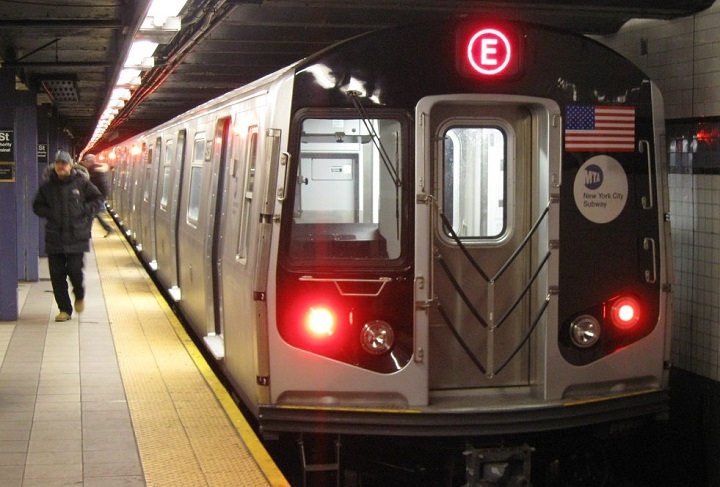BY MARK HALLUM AND ROBERT POZARYCKI
A once impossible notion about New York City life is becoming a reality due to the coronavirus pandemic: The overnight closure of the entire subway system for cleaning.
Governor Andrew Cuomo made the announcement at his Thursday press conference. Starting May 6, the city and the state will begin a joint effort to move millions of New Yorkers by alternate means of transportation between the hours of 1 a.m. to 5 a.m. for all trains, buses and stations to be thoroughly cleaned.
Every touchable surface will be disinfected. Cops will be dispatched to subway stations to ensure they are cleared, and no one is allowed to enter.
Train service will be replaced by an “Essential Connector” program that the MTA will oversee. For-hire vehicles will be used to shuttle essential workers for free to destinations. Each customer will be limited to two trips per overnight, and must show proof of essential travel with their credentials in order to get the free lift.
On April 29, Cuomo directed the MTA to formulate a plan that would see the trains cleaned for commuters every morning and today’s announcement is the materialization of that order.
But perhaps for the first time since the MTA took over operations of the city’s subways, Mayor Bill de Blasio and Governor Andrew Cuomo are putting resources together for a massive effort to sterilize the trains in the midst of a disproportionate number of transit worker deaths.
The start date of the overnight shutdown precedes the scheduled reopening of the state on May 15.
“This is as ambitious as anything we’ve ever undertaken and it’s going to require a lot extraordinary service and effort from multiple agencies all working together. The MTA has stepped up by recommending this plan… a big part of this falls to the city,” Cuomo said at the April 30 briefing. “I guarantee you another 10 things will come up when we go to do this that are also unanticipated consequences.”
In early 2017, before officially assuming the role of New York City Transit President, Andy Byford advocating for halting 24/7 service to speed upgrades to the system that was at the time under a famously dismal state of good repair. Byford’s proposition, made during a New York Times interview, was swiftly brushed aside by the MTA.
The coronavirus pandemic changed the dynamic for the MTA. The highly-contagious illness has sickened tens of thousands of New Yorkers and killed more than 15,000 in just two months — including nearly 100 MTA employees.
For de Blasio, this time around the proposal also advances the city’s effort to get homeless people out of the subway system and accept social services to help them get back on their feet.
“We’ve all been thrown the biggest curveball in our lives with this COVID-19 pandemic,” de Blasio said. “We are going to find a way to make our subway system cleaner than it’s ever been in its history, probably.”
The mayor and the MTA launched an overnight outreach effort at the 40 subway terminals of subway lines, with the help of NYPD’s Homeless Outreach, ensuring all homeless New Yorkers get off the train and are offered alternatives to the streets and trains.
The Riders Alliance, however, was cautious to back shutdown plan.
“Even during a crisis, New York is and will be a 24/7 city. Governor Cuomo’s suspension of subway service must be strictly temporary while a longer-term solution is developed and implemented,” said Danny Pearlstein, policy director for the organization.
Just two weeks ago, four City Council members proposed shutting down the transit system for at least a week for a through cleaning and replace service with ride-sharing vehicles — something was not popular with transit leaders or the governor. That plan further called for daily overnight service suspensions, from 12 to 5 a.m., once service was restored.
One of letter’s authors, City Councilman Robert Holden of Queens, lambasted all parties Thursday for initially balking at their suggestions.
“We were ridiculed in statements from the MTA and both the governor and mayor’s offices who said our proposals were not possible, with the MTA actually calling the idea ‘dumb.’ Now they are finally implementing some of these measures that we suggested two weeks ago, so imagine how many more lives could have been saved during that time. But I’m glad to see that the governor and mayor are finally listening.” Holden said.
Trains on the Metro-North and Long Island Rail Road systems will also be disinfected every night, but that will not impact service.
This story was updated on April 30 at 1:15 p.m.




























